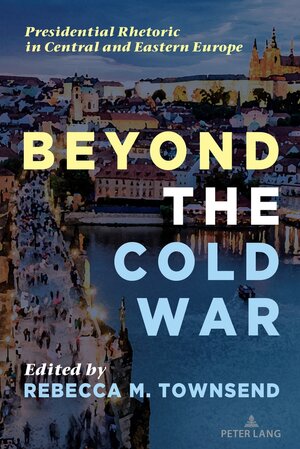Most books about presidential rhetoric focus on the United States. Few American communication scholars concentrate on Central and Eastern Europe. Media pundits and scholars alike framed this region as a place used for the United States’ or Russia’s Cold War ends—even after the Cold War ended. Beyond the Cold War: Presidential Rhetoric in Central and Eastern Europe brings scholars from Central and Eastern Europe and the United States together to study presidential rhetoric to make a compelling case for treating the leaders of the region with their own agency, rather than as agents of others.
As postcolonial agents, leaders in the region have taken contrasting positions, avoiding the influence of post-Soviet politics and the pull toward westernization. Chapters offer insight into the connections and influence of presidential rhetoric in Central and Eastern Europe to contextualize and better understand how the rhetoric has either helped or hindered the development of democratic principles in the region many decades past the period of the „transition.“ This book contributes to the understanding of international rhetoric by studying leaders and exchanges in which they meet—in state visits or as candidates debating. This book will be an invaluable resource for students of rhetoric and scholars interested in the communication of presidents in Central and Eastern Europe.
„Beyond the Cold War lives up to its title. This collection of smart, insightful, and liberatory studies of Eastern Europe in the rhetorical imaginary of assorted presidents dispenses with outdated frameworks and, instead, takes these nations on their own terms. As these nations assert an ever more important role in international affairs, this book will become indispensable to those who want to understand their history and discourse.“
— John M. Murphy, Professor, Dept. of Communication,
University of Illinois Urbana-Champaign
As postcolonial agents, leaders in the region have taken contrasting positions, avoiding the influence of post-Soviet politics and the pull toward westernization. Chapters offer insight into the connections and influence of presidential rhetoric in Central and Eastern Europe to contextualize and better understand how the rhetoric has either helped or hindered the development of democratic principles in the region many decades past the period of the „transition.“ This book contributes to the understanding of international rhetoric by studying leaders and exchanges in which they meet—in state visits or as candidates debating. This book will be an invaluable resource for students of rhetoric and scholars interested in the communication of presidents in Central and Eastern Europe.
„Beyond the Cold War lives up to its title. This collection of smart, insightful, and liberatory studies of Eastern Europe in the rhetorical imaginary of assorted presidents dispenses with outdated frameworks and, instead, takes these nations on their own terms. As these nations assert an ever more important role in international affairs, this book will become indispensable to those who want to understand their history and discourse.“
— John M. Murphy, Professor, Dept. of Communication,
University of Illinois Urbana-Champaign






